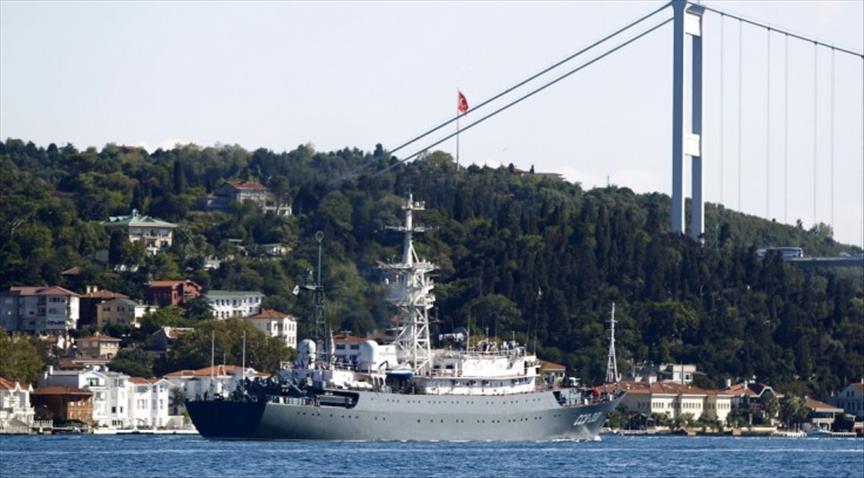Around two hundred more vessels passed through the Istanbul (Bosphorus) Strait in the first seven months of this year compared to the same period last year, bringing to 26,663 the total number of ships using one of the worlds busiest shipping lanes during this period, according to the Turkish Maritime Affairs ministry.
The 16 mile long strait, the only waterway between the Black Sea and the Mediterranean is used by around 127 vessels, including 25 tankers daily. Some of the vessels weigh as much as 200,000 tons, often carrying oil, gas, chemicals, nuclear waste, arms and other hazardous materials, according to Ministry data.
These straits are very sinuous, often narrow, and flowed by strong and complex currents.
The Istanbul Bogazı is also S-shaped, and at one point ships must make a 45-degree turn not easy with a big ship at full speed.
The ministry also said 14,082 ships, including 5,327 tankers carrying highly flammable oil, use pilots from Turkish Marine Pilots Association members to guide them through- because its channel is less than 800 metres wide and very tricky due to water flows southward through the Bosporus from the Black Sea to the Mediterranean Sea. There is a rising risk of an accident or collision.
The main principle in peace time is freedom of passage, according to the 1936 Montreaux convention.
Turkey has been properly and impartially implementing the Montreux Convention for 78 years, the Turkish Foreign Ministry told the AA.
There have been accidents in the straits in previous years.
On November 15, 1979 Romanian tanker M/T Independenta collided with Greek flagged M/V Evriali near Haydarpasa shores. 43 people died when Romanian ship exploded and burnt for days, and the accident was recorded as one of the dealiest naval accidents in the Turkish straits. More than 90 thousand tons of crude oil spilled and polluted the Bosphorus for a few years.
In 1991, a Philippines flagged vessel collided with the Lebanese flagged livestock carrier resulting in the drowing of 21,000 sheep.
In 2000, a Russian tanker split into two, 1,500 tons of oil spilled into the sea. The clean-up operation of the contaminated beaches took about two years.
'More than 700 accidents occurred in the Istanbul and Canakkale Straits in last fifty years,” said, Saim Oguzulgen, captain and Director for Turkish Straits Research and Implementation Centre at Bahcesehir University in Istanbul.
“These marine accidents killed hundreds of sailors, dozens of ships sunk or burned to scrap, thousands of tons of crude oil or petroleum products spill into the sea, and incredible environmental pollution has occurred. Everyone wants the necessary precautions have taken to avoid similar accidents in future,'
Oguzulgen said that today, there are still steering and machinery breakdowns reported each day in the Turkish straits. 'The Turkish government has made legal reforms and investment to avoid any accidents. User of the straits need to comply with the safety rules and measures in order to protect Istanbul’s people's lives as well as the ships journey,' he said.
After accidents in 1990s, Turkey imposed new legislation stating that vessels longer than 150 meters are advised to take pilot captains and guiding tags. Automatic pilots for navigation are prohibited, ships powered by nuclear energy, or carrying nuclear or other hazardous materials must report to Turkish Environment Ministry for permission.
No more than a single vessel carrying materials deemed hazardous will be allowed to pass at the same time, all ships must notify Turkish authorities 24 hours in advance of intention to pass through straits, all commercial ships longer than 200 meters can pass only in daytime, passage requires favorable weather.
However, despite all the legislation and precautions put in place, the risk of new accidents in Turkey's most congested waterways still remains.
by Bahattin Gonultas
Anadolu Agency


